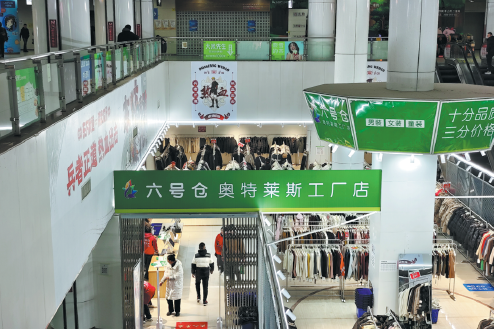Tariff removal can help rein in US inflation


Specialists: Easier Chinese imports to benefit consumers, firms, rest of world
Cutting tariffs on imported Chinese goods can help the United States curb its runaway inflation and improve bilateral economic relations, which will benefit even the rest of the world, economists and trade experts said on Thursday.
Their remarks followed the latest data showing that despite a series of interest rate increases, US inflation reached 9.1 percent in June, a pace not seen in nearly 41 years.
"Considering the issue rationally from the perspective of economics, the conclusion that the additional US tariffs against China should be removed is inescapable," said Zhang Yansheng, chief researcher at the China Center for International Economic Exchanges.
"Yet, the tariffs haven't been cut till now, because there are disputes within the US government as some people want to use the tariffs as a political leverage to contain China although some others pay attention to the economic benefits from cutting tariffs."
Currently, most of the additional US tariffs on Chinese goods are still in place.
No decision has been announced yet since the US president said in May his administration was weighing the option whether to cut some tariffs on imports from China, although several US news outlets reported last week that the US plans to drop tariffs on $10 billion worth of Chinese goods, an amount considered tiny by many.
Chen Jia, a researcher at the International Monetary Institute of the Renmin University of China, said the US trade measures against China have been increasing the cost of living for US people.
"China always upholds mutually beneficial principles and seeks win-win cooperation, and if the US corrects its wrong trade measures against China to improve trade relations between the two nations, it will benefit both countries and the rest of the world," he said.
Data from the Americans for Free Trade, a broad coalition united in the fight against tariffs, showed that the Americans have paid an estimated $129 billion in so-called Section 301 tariffs between July 2018 and April 2022, and there is no sign that Section 301 tariffs are slowing.
As Chinese exports to the US remain robust, the average monthly Section 301 tariffs paid under the current US administration ($3.8 billion) are 67 percent higher than average monthly level under the former administration ($2.3 billion).
According to Zhou Mi, a senior researcher at the Chinese Academy of International Trade and Economic Cooperation in Beijing, the accelerating US inflation reflects the wide concerns over the bottlenecks in the US and global supply chains-and the additional US tariffs on China have piled on more stress to supply chains.
"If the US lifts tariffs on China, market confidence will be strengthened as the economic relations between the world's two largest economies improve. Then the supply chains within and outside the US will likely get reinforced to build up more support for the US to curb inflation," he said.
Analysts said the US has few options to curb the inflation as more aggressive increases of interest rates will risk triggering a recession in the country.
Zheng Houcheng, director of the Yingda Securities Research Institute, said if the US continues to increase interest rates progressively, demand and output will both likely decline in the country, leading the economy into a recession, which could drag down the global economic recovery.
US business leaders have also expressed hopes the country will consider waiving tariffs and support free trade.
Jonathan Gold, spokesman for the Americans for Free Trade, said in a recent news release that the last thing that US businesses and consumers, now caught between the COVID-19 pandemic and rising costs from inflation, should have to worry about are tariffs.
Eddy Chan, senior vice-president of the US-based FedEx Express and president of FedEx China, said the company believes that free trade and multilateral cooperation are the best ways to promote common prosperity and inclusive growth.



































